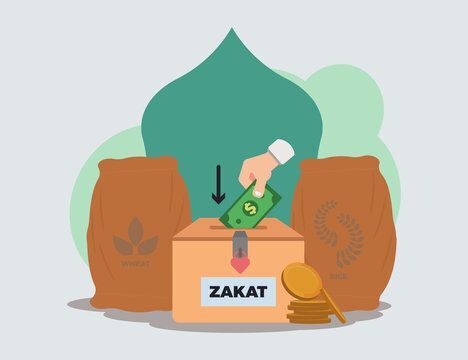
Charity is a cornerstone of Islamic Faith, a practice that is common to all major faith groups. As we are completing the month of Ramadhan, many Muslims are thinking about and fulfilling “Zakat”, one of the five pillars of Islamic faith. Zakat is an obligation to dedicate 2.5% of one’s annualized net asset (asset minus liabilities) at certain point in time. Muslims have traditionally looked at the month of Ramadhan when they estimate their net asset and earmark 2.5% of that for Zakat.
Zakat is different than regular charity or “Sadaqah” as is commonly known. One of the ways that Muslims have diminished impact of Islam in our life and in society is by downgrading Zakat to be same as Sadaqah and at times not paying Zakat at all.
Here are some of the differences between Zakat and Sadaqah:
Zakat is an obligation like Daily Prayers, Ramadhan Fasting, and Hajj while Sadaqah, as a regular charity, is strongly encouraged and can be done any time for any helpful purpose and in any amount.
Zakat is a fixed percentage of net assets, while Sadaqa is any amount that a person can afford and wish to. Sadaqa can also be non-monetary such as volunteering your time for a good cause. Our Prophet (pbuh) even said, a smile to a fellow human being is an act of Sadaqa.
While Sadaqah is an individual responsibly, Zakat is a collective responsibility, meaning a community, a region, a nation should orchestrate and organize collection of Zakat so that the resources can be pooled and directed for longer term strategic purpose of the society. For example, while Sadaqah should be used to say, feed a poor person, Zakat should be used to remedy the root cause of poverty in society. Another example could be say, Sadaqah can be used to give scholarships to students to attend school, while Zakat should be used to make education free for the broader society.
Verse 9:60 in the Qur’an provides guidance on Sadaqa – to feed the poor, help the needy, free the enslaved or someone burdened with debt, travelers aways from home, to establish God’s guidance (truth and justice in society), provide salary for those administering such Sadaqa, etc.
No specific instruction is given for Zakat in the Qur’an but in general Muslim Jurists had taken the instruction for Sadaqa based on verse 9:60 and agreed that Zakat can and should be used for the same purposes as Sadaqa on the assumption that Zakat is a form of Sadaqa and hence Zakat can be discharged by individuals as they see fit.
We at MyLLife would propose a different perspective that is more aligned with the practices of early Muslim communities including the time of the Prophet and later leaderships. It is very clear from the early Islamic history that Zakat was a collective responsibility and was pooled by the community into a common fund and was decided collectively (by leadership of the community) how it should be spent, and not by individual givers.
Given the collective nature of the fund and the large size of the fund, it should be spent for common good which is to advance God’s guidance in the form of seeking the Truth and establishing Justice in society as verse 7:181 clearly indicates.
Given what is going on in Gaza and rise of Islamophobia, Zakat can help build a pool of resources to educate Muslim community, actively shape public policies, improve economic and social justice.
We will continue to impress upon this in future issues so that Zakat can be restored to its original and intended purpose.
Your thoughts on Zakat are welcome. We would like to hear how you have been fulfilling your Zakat obligations in the recent past.

